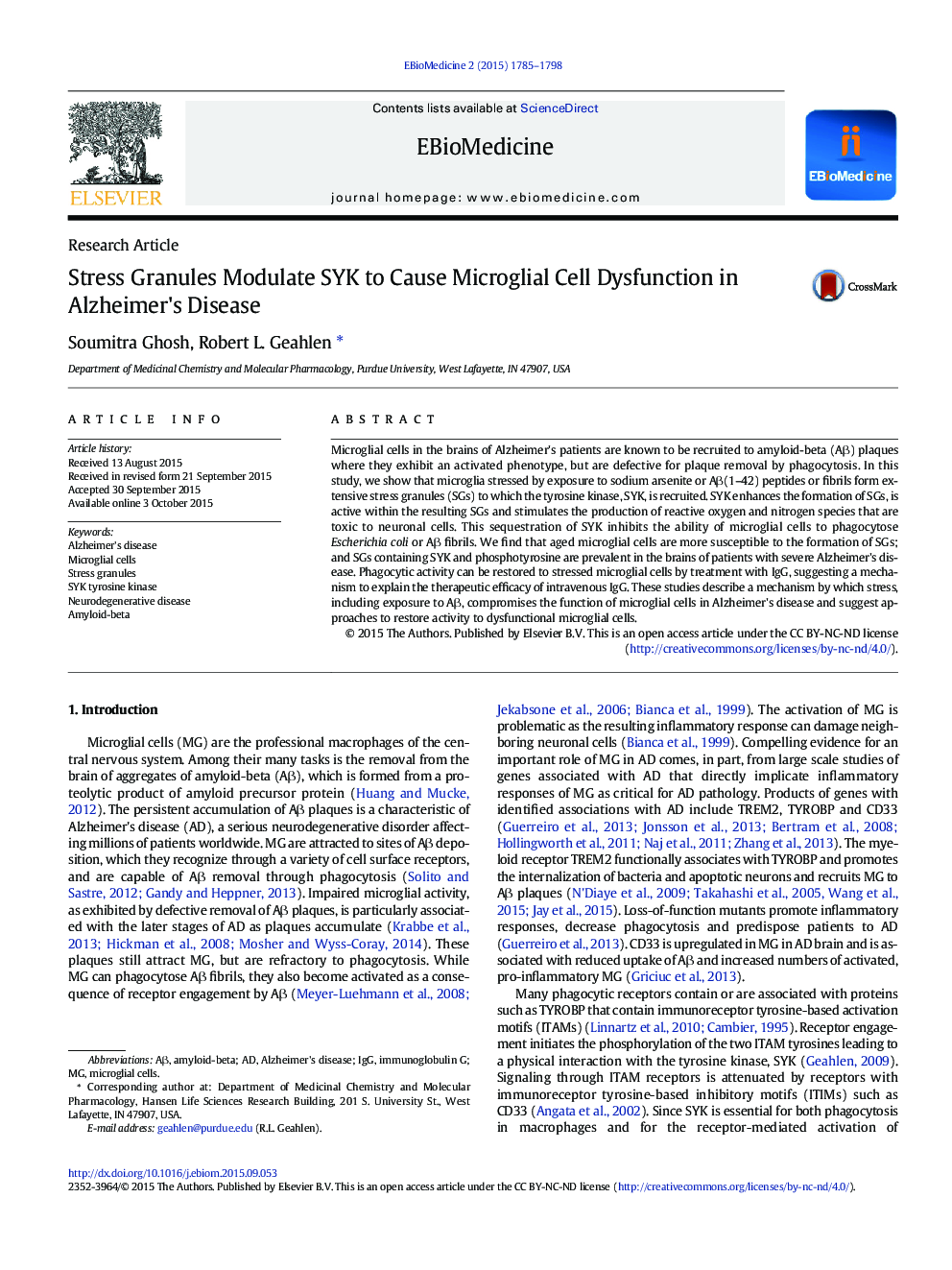| Article ID | Journal | Published Year | Pages | File Type |
|---|---|---|---|---|
| 2121011 | EBioMedicine | 2015 | 14 Pages |
•Chronic stress promotes the formation of large, persistent stress granules in microglial cells.•SYK is recruited to stress granules, which promotes inflammatory responses and inhibits phagocytosis.•Phagocytic activity of stressed cells can be recovered by treatment with IgG.Microglial cells in the brains of patients with Alzheimer's disease are activated, but are defective at phagocytosis of amyloid plaques. Activation and phagocytosis require the SYK tyrosine kinase. Chronic exposure to amyloid-beta promotes the formation of persistent stress granules to which active SYK binds and these are found in the brains of patients with severe Alzheimer's disease. This activation and sequestration of SYK promotes inflammation and inhibits phagocytosis. Phagocytic activity can be recovered by treatment with IgG, which causes a redistribution of SYK within the cell, suggesting potential therapeutic approaches to restoring microglial cell function to diseased or aged brains.
Microglial cells in the brains of Alzheimer's patients are known to be recruited to amyloid-beta (Aβ) plaques where they exhibit an activated phenotype, but are defective for plaque removal by phagocytosis. In this study, we show that microglia stressed by exposure to sodium arsenite or Aβ(1–42) peptides or fibrils form extensive stress granules (SGs) to which the tyrosine kinase, SYK, is recruited. SYK enhances the formation of SGs, is active within the resulting SGs and stimulates the production of reactive oxygen and nitrogen species that are toxic to neuronal cells. This sequestration of SYK inhibits the ability of microglial cells to phagocytose Escherichia coli or Aβ fibrils. We find that aged microglial cells are more susceptible to the formation of SGs; and SGs containing SYK and phosphotyrosine are prevalent in the brains of patients with severe Alzheimer's disease. Phagocytic activity can be restored to stressed microglial cells by treatment with IgG, suggesting a mechanism to explain the therapeutic efficacy of intravenous IgG. These studies describe a mechanism by which stress, including exposure to Aβ, compromises the function of microglial cells in Alzheimer's disease and suggest approaches to restore activity to dysfunctional microglial cells.
Graphical AbstractFigure optionsDownload full-size imageDownload as PowerPoint slide
